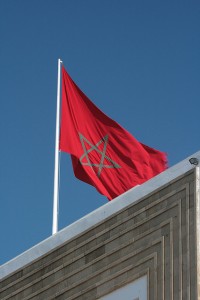Reuters
By Andrew Torchia
Morocco plans to boost state spending in support of industry and reform regulations as part of an effort to double foreign direct investment by 2020, investment minister Moulay Hafid Alamy said.
Unlike many Arab economies, Morocco managed to avoid a big drop in FDI in the wake of the global financial crisis and the Arab Spring uprisings of 2011, partly by marketing itself as an export base for Europe, the Middle East and Africa.
FDI inflows are now running at an annual rate of about 4 billion euros ($5 billion), higher than pre-crisis levels of around 3 billion euros, Alamy said in an interview.
“We think we can double that by 2020,” said the former insurance industry entrepeneur, who built a fortune estimated by Forbes magazine at $620 million before becoming minister in October 2013.
As the volume of FDI rises, Morocco is moving up the manufacturing value chain, particularly in aersopace and autos.
Last year Canadian plane maker Bombardier began building a $200 million plant to make parts for its CRJ Series aircraft. Multinational industrial manufacturer Eaton Corp said it was establishing a factory to make electrical distribution modules and protection devices.
Moroccan bonds have outperformed most emerging markets since last year partly because of this trend; Morocco’s economic growth should accelerate next year as higher-value-added sectors increase their contribution, Standard & Poor’s said last week.
Alamy outlined a strategy to attract investment that focuses on private sector companies — he will encourage investment banks to partner with foreign investors to arrange projects — but involves a sizeable dose of state intervention.
A new public investment fund, reaching about 2 billion euros by 2020, will support strategic projects with state money, while the government aims for industrial parks across the country.
At the same time, it plans new regulations to encourage the creation of smaller firms that will provide goods and services to foreign investors. They will be able to register in a single day, an incentive which Alamy hopes will bring many unregistered Moroccan firms into the legal economy.
Morocco has two factories making fully assembled cars, both involving Renault, and the local business community believes a third may be in the works.
Alamy said his ministry was in talks with seven foreign auto industry companies, which he declined to name, and expected to sign deals — not necessarily for full assembly plants — with at least two of them by the end of next year.
(Reporting by Andrew Torchia; Editing by Catherine Evans)








